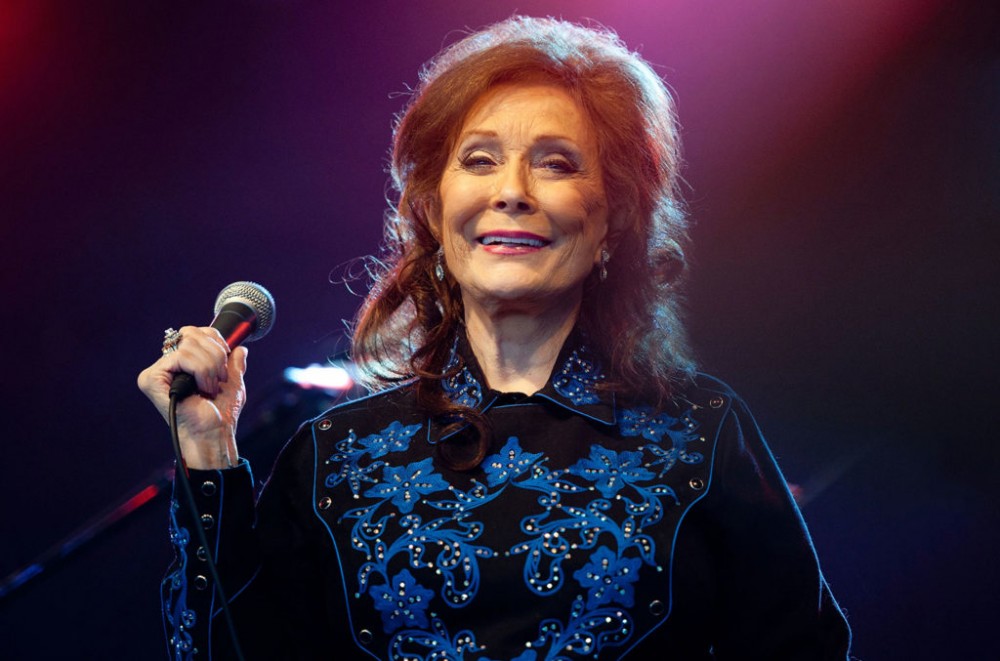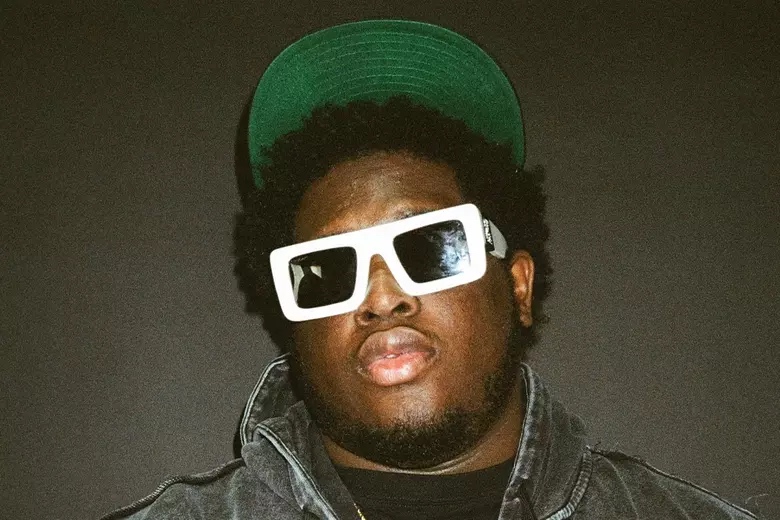Lynn says she still sees Cline, in visions while playing music at home. “She just looks and smiles like, ‘You’re doing good, honey.'”
Even before Nashville issued safer-at-home guidelines and ordered the downtown bars closed, Loretta Lynn was on lockdown at her home 75 miles away in rural Hurricane Mills, Tenn.
At age 87, she’s in one of the demographic segments of the population considered most at risk from the coronavirus. And with a stroke and a broken hip both in her medical chart from the last three years, she’s even more vulnerable. Her doctors thus required Lynn to cancel or postpone face-to-face appointments, including a planned visit from Billboard. A phone conversation was still doable, but the shutdown — especially coming on the heels of March 3 tornadoes in Middle Tennessee — already was making her feisty.
“Yeah, we’ve been quarantined,” she says. “It’s the damnedest thing I ever seen.”
The timing is regrettable. Lynn had a handful of national promotional opportunities on the calendar before the pandemic got in the way, all to support a new book, Me & Patsy: Kickin’ Up Dust — My Friendship With Patsy Cline (April 7, Grand Central Publishing). Written with daughter Patsy Lynn Russell, the book explores the coal miner’s daughter’s relationship with Cline, but also traces the influence of husband Oliver “Mooney” Lynn, producer Owen Bradley (Conway Twitty, Ernest Tubb), former managers The Wilburn Brothers and fellow Grand Ole Opry member Dottie West.
In addition, Legacy plans to release a Lynn remake of Cline’s “I Fall to Pieces” on April 3. Russell and John Carter Cash produced the track with an all-star cast of musicians at the Cash Cabin Studio, the same location where Johnny Cash cut “Hurt.”
“I Fall to Pieces” is significant in Lynn’s friendship with Cline. Lynn sang it on The Midnite Jamboree in 1961 when Cline was laid up in the hospital from a car accident, and the performance earned an invitation to visit her in the hospital. Less than two years later, Cline died in a plane crash, and Lynn would commit “I Fall to Pieces” to vinyl in a 1977 tribute album, I Remember Patsy.
“She was my big sister,” suggests Lynn of Cline.
Indeed, Cline served as the voice of experience for Lynn on numerous fronts. She handed down stage clothing, provided advice about contracts and handling inappropriate advances from men in the business and squashed an uprising from jealous female Opry stars when Lynn was inducted into the WSM-AM Nashville cast. And Cline gave a heap of insight into vocal techniques.
“She told me how to walk onstage, you know, and how to hold the mic,” recalls Lynn. “Low note; put the mic close. Whenever it’s going to be a high note, pull the mic away from my mouth, which helped me a lot.
“She told me I could be a better singer if I would,” adds Lynn with a laugh. “I told her she could, too.”
The two women were very different singers. Cline sang with a smooth delivery, bringing a touch of traditional pop influence from such vocalists as Teresa Brewer and Rosemary Clooney to the genre, while Lynn infused songs that frequently tackled controversial domestic and cultural topics — including infidelity and gender inequality — with a backwoods dialect, mangling words on occasion (most famously when she sang, “I was borned a coal miner’s daughter”).
“Everybody told me I wasn’t saying my words right, but I wouldn’t listen to ’em,” insists Lynn. “If I would’ve listened to ’em, I would’ve been doing songs] just like them. And that wouldn’t have been different, would it? Hell, I got more sense than that. I might have been born in Butcher Holler at night, but not last night.”
That willingness to fight for their own place as an artist is a trait that Lynn and Cline shared. Lynn had the good fortune to attend a number of Cline’s sessions — including an August 1961 recording date in which Cline made her first attempt at recording Willie Nelson‘s “Crazy” — and she witnessed Cline standing up for her art firsthand.
“Owen and Patsy would cuss each other out,” says Lynn. “They’d start to record; Patsy’d be trying to tell him how to do it. He’d be telling her she’s the singer, not to tell him how to do it. It was funny.”
Lynn and Cline share other similarities: They were both inducted into the Country Music Hall of Fame, and both were the subjects of 1980s movies titled after one of their iconic Bradley-produced hits: Lynn in 1980’s Coal Miner’s Daughter and Cline in 1985’s Sweet Dreams.
And there’s a day they spent together that’s etched into Lynn’s memory: Feb. 28, 1963. As detailed in the book, it was the last time they crossed paths before Cline’s plane crash, and they hung out twice — first at Lynn’s new house, where Cline delivered tailor-made drapes, and later at Cline’s house, where she previewed what proved to be her final recordings, including the now-classic “She’s Got You.”
Even though Cline may be physically gone, she still visits Lynn on a fairly regular basis. “I was singing one day, and I thought, ‘Geez, I wish Patsy was here,'” recalls Lynn. “I looked up, and there she sat. Every time I’ve done that, she’s been with me. I see her a lot.”
Cline has not aged in those visions, and she’s frequently wearing a specific outfit — a white blouse and red “stretchy pants,” notes Lynn. And Cline offers support each time, still performing the role of a friend when Lynn needs it most.
“She just looks and smiles like, ‘You’re doing good, honey,'” says Lynn.
It’s the only sort of visit Lynn can accept from the outside world for the moment. The coronavirus pandemic has created that situation for people all across America, and Lynn is trying to maintain a sense of optimism about it.
“I’ll be fine,” she says. “I think they’ll let me out of this anytime, basically whenever the problem is over. Then we’ll talk again.”
And, as she says both in Me & Patsy and on the phone, she knows she will talk with Cline again: “We’ll all be together pretty soon.”
This article first appeared in the weekly Billboard Country Update newsletter. Click here to subscribe for free.



